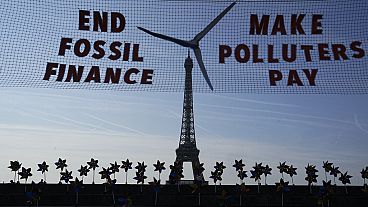BERLIN (Reuters) - The German government has come under pressure to abandon its balanced budget goal and finance more fiscal stimulus with new debt. With Europe's largest economy on the brink of recession and Berlin's borrowing costs at record lows, some have even put the more formal debt brake rule into question.
Below are some facts about Germany's self-imposed balanced budget goal and the constitutionally enshrined debt brake.
BALANCED BUDGET
Chancellor Angela Merkel's government has managed to raise spending since 2014 without incurring new debt thanks to an unusually long growth cycle, record-high employment, buoyant tax revenues and the European Central Bank's loose monetary policy.
The self-imposed goal of keeping the federal government's budget balanced is viewed as a historic achievement for Merkel's conservatives and in particular party veteran Wolfgang Schaeuble, finance minister between 2009 and 2017, who is widely seen as the father of the so-called 'black zero' budget.
The idea of financing any state spending hikes with revenues alone while slowly reducing public debt has so far been backed by the centre-left Social Democrats (SPD), junior partners in Merkel's coalition, and their Finance Minister Olaf Scholz.
The pro-business Free Democrats (FDP) and the far-right Alternative for Germany (AfD), both in opposition, also support the goal.
However, in light of the weakening economy, rock-bottom borrowing costs and additional policy challenges such as fighting climate change, the balanced budget goal has come under fire.
The SPD's left wing, the left-leaning Greens and the radical Left Party all want to bury Schaeuble's black zero budget by financing more public investments with new debt.
In an unusual move, the highly influential BDI industry lobby group, traditionally close to Merkel's conservatives, also called for a fiscal U-turn and a debt-financed stimulus package.
Merkel and Scholz so far have defended the balanced budget goal, arguing that it is important to reduce debt in economic good times and not to burden future generations with even more debt in light of Germany's rapidly ageing society.
Still, a senior government official told Reuters last week that the finance ministry is considering ditching the policy to help finance a costly climate protection programme with new debt.
A final decision could come on Sept. 20 when coalition parties are expected to agree a bundle of measures to help meet ambitious climate goals.
DEBT BRAKE
If Merkel and Scholz decided to sacrifice their political commitment to a balanced budget and run a small deficit, their room to act would still be limited by the debt brake.
Under a constitutional amendment introduced by Merkel's conservatives and the SPD in the wake of the global financial crisis of 2008/09, the federal government can increase debt by the equivalent of 0.35% of gross domestic product - with more borrowing only allowed in times of crisis or emergency.
The 16 federal states, traditionally in charge of a large chunk of public infrastructure investments in Germany, are not allowed to incur any new debt from next year.
For 2020, budget experts currently estimate that the federal government could take on new debt of nearly 5 billion euros (4.6 billion pounds) if the balanced budget goal were ditched.
That could increase to 10 billion euros in coming years, depending on factors such as economic growth and the outflow of public funds already earmarked in so-called Sondervermoegen (special purpose funds) for policy goals like renovating schools and faster internet.
Abolishing the national debt brake would require two-thirds majorities in both chambers of parliament, a task viewed by senior government officials as a "mission impossible" in light of the currently fractured political landscape.
The institutional and political constraints surrounding Germany's balanced budget and the debt brake reduce the chances of a radical shift in fiscal policy, analysts say.
"If the bad economic news continues, a gradual approach is likely to emerge through autumn," said Carsten Nickel, managing director at Teneo, a consultancy.
A big spending splurge should be expected only if there were a real sense of global economic crisis in which Germany's so far solid labour market was hit by mass lay-offs, Nickel added.
A senior government official told Reuters on condition of anonymity that the wind had changed and things could evolve quickly in the coming months.
"The issue of new debt is no longer a taboo in Germany, this in itself is progress," the official said.
(Reporting by Michael Nienaber; Editing by Toby Chopra)



